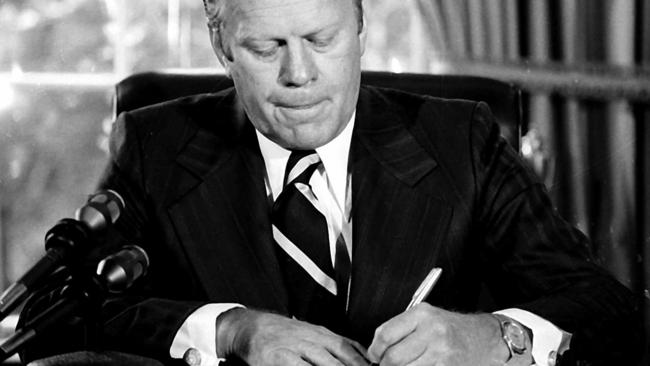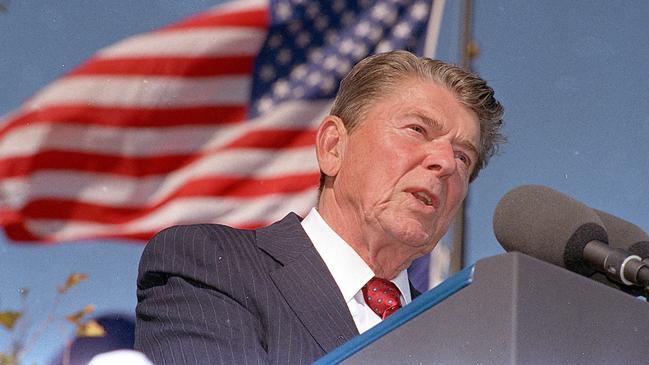History of presidential mercy rule traces back to British king
Washington, Jefferson, Reagan and Clinton — they all did it.

US President Joe Biden pardoned son Hunter with the hope that “Americans will understand why a father and a president would come to this decision”.
Some seemed to think they understood the decision only too well, but those Americans who were struggling could look to history. They could blame their founding fathers – or better, the British, as a Supreme Court decision did in 1974. “The draftsmen (of the US constitution) were well acquainted with the English crown authority to alter and reduce punishments as it existed in 1787,” it said.
They considered limiting the power, by making it subject to consent by the Senate, or by making an exception for treason, but proposed amendments to this effect were voted down. Alexander Hamilton noted with satisfaction that the president had been given pardoning powers equal to “the king of Great Britain”.
George Washington used the power for the first time in 1795, after a rebellion over whiskey duties, sparing two men from the gallows and pardoning the others in the hope of quelling unrest.
“The misled have abandoned their errors,” he told congress, adding that while firmness was “a sacred duty”, he hoped to “mingle in the operations of government every degree of moderation and tenderness which the national justice, dignity and safety may permit”.
The mingling continued thereafter. Thomas Jefferson pardoned deserters who returned to their posts. Abraham Lincoln did something similar in 1865, offering amnesty to Confederates who swore an oath to the Union. Andrew Johnson went further, granting full pardons to all who fought for the Confederacy.
Just over a century later, in the same professed spirit of healing divisions, Gerald Ford pardoned Richard Nixon, his predecessor, weeks after Nixon had resigned the presidency over the Watergate cover-up. The pardon was “for all offences against the United States which he, Richard Nixon, has committed or may have committed”. Nixon accepted it, in what Ford took to be an admission of guilt.
Not everyone accepted their pardon. George Wilson, a convicted train robber who had friends in Washington, was spared the death penalty by Andrew Jackson in 1829 but refused to accept his clemency, for reasons historians have struggled to identify. Records suggest Wilson accepted a subsequent pardon by Martin Van Buren, Jackson’s successor.
Plenty of other pardons were issued by presidents for less lofty purposes than healing a divided nation. Clemency was regularly extended to friends and allies, often for campaign finance violations. Ronald Reagan pardoned George Steinbrenner, owner of the New York Yankees who had made illegal contributions to the Nixon campaign; George HW Bush pardoned six people in relation to the Iran-Contra arms affair; Bill Clinton issued 140 pardons on his final day in office, including to his half-brother, Roger Clinton, for a drugs conviction from 1985.

Donald Trump pardoned longtime friend and adviser Roger Stone, former campaign chairman Paul Manafort, former chief strategist Steve Bannon and an in-law, Charles Kushner, whom he has now nominated as ambassador to Paris.
Hunter Biden is the third presidential family member to receive a pardon, though he is not actually the first member of his family to get one. Some 160 years ago Moses Robinette, his great-great-great-grandfather, was beginning a two-year sentence of hard labour for a fight in an army camp that left the other man bleeding from knife wounds. Three officers who knew him felt the punishment overly harsh, and sought clemency from their commander-in-chief. He was duly pardoned, by Lincoln, in September 1864.
The Times



To join the conversation, please log in. Don't have an account? Register
Join the conversation, you are commenting as Logout